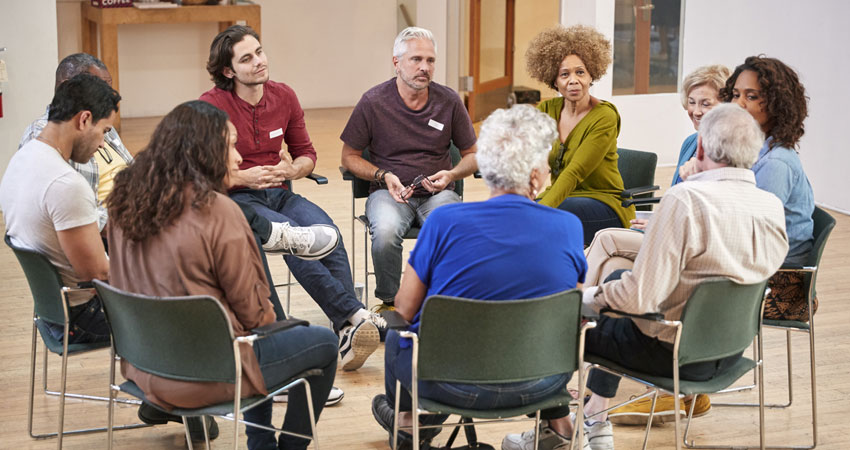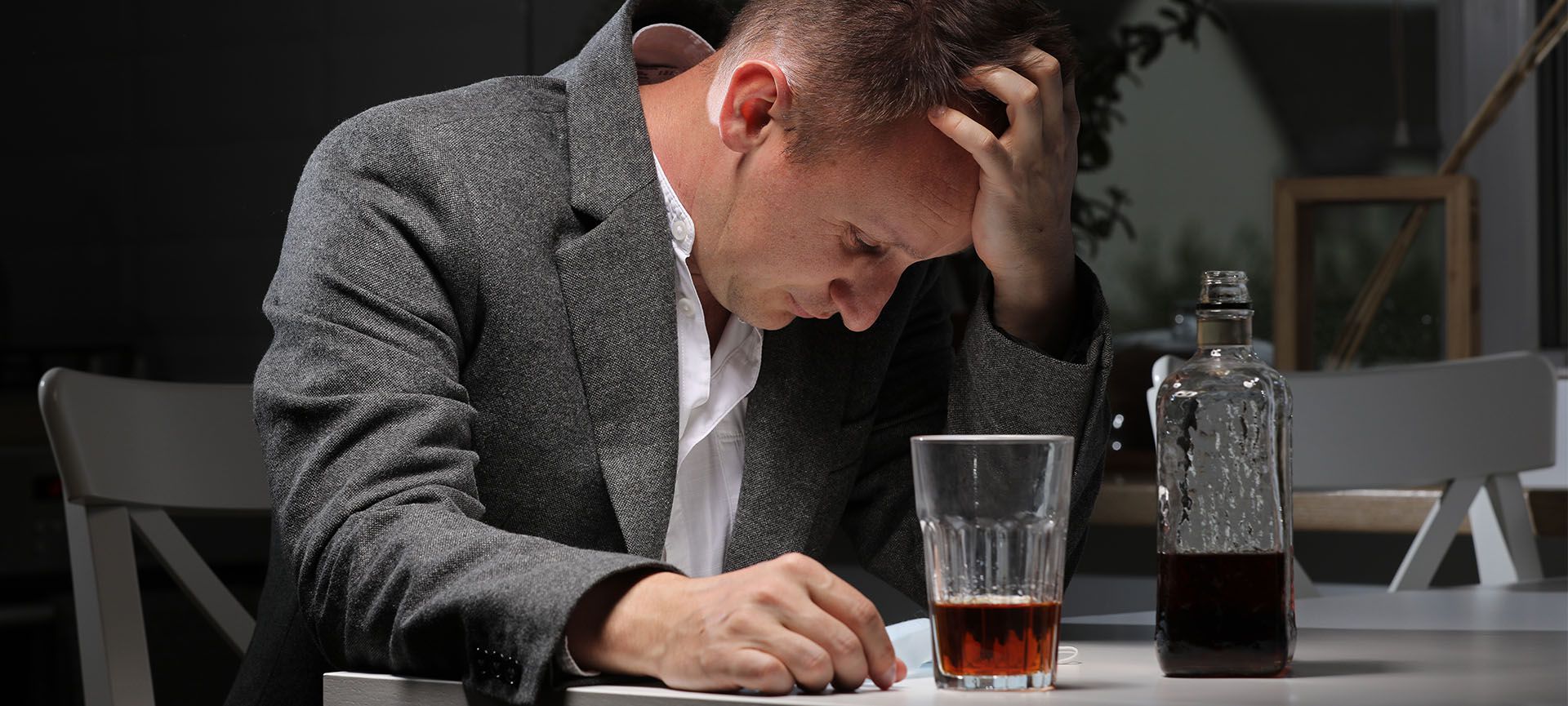Experiential therapy is now considered a breakthrough technique in treating recovering addicts, thus helping them lead a healthier, cleaner lifestyle. Let’s get to know more about it here and see how it can help in addiction recovery.
What is Experiential Therapy?
This therapeutic approach has been used way back in the 70s, taking its reference on the “humanistic paradigm”. It is supported by American psychologists Abraham Maslow’s hierarchy of needs and Carl Rogers’ person-centred therapy.
Such is influenced by the Gestalt therapy of German psychiatrist and psychotherapist Fritz Perls. The therapeutic techniques of Perls and Rogers are experiential-based, which mirrors experiential techniques in treatment.
To get a grasp on the experiential therapy concept, here is an explanation. Traditional talk therapies that are often used for a patient’s addiction recovery mostly deal with just the tip of an iceberg.
Yes, those visible symptoms could take away, but under it lies a box of hurtful memories, pain, resentment/anger, forgotten promises, insecurities and such. With this, it is not hard to think that the patient may experience possible relapse because the addiction is still rooted deep down.
Some people could easily talk about their lives in the past, their addictive ways, and their dreams and aspirations. There are still many individuals out there who find it challenging to reminisce those hurts kept inside.
With all the years of keeping those negative memories, it isn’t any wonder why letting them out in the open seems to be a vast, if not impossible, a task. It is for this reason why many people agree that experiential therapy has a more significant advantage in this process. It focuses on our memories better than traditional talk therapy does. In a nutshell, it deals with things deep in our core, which our senses don’t want to recall.
Experiential therapy motivates patients to be aware of their suppressed or mechanical issues. All of which addressed by engaging in hands-on activities which include actions and movements, as opposed to the more conventional way, often used that is “talk therapy.”
Such non-traditional approach uses activities like role-playing, use of words, music and art materials/props. It also includes a wide array of various interactive programs to help substance-abuse addicts recover and cope with their past negative experiences.
Experiential therapy for addiction recovery is mostly applied to patients to treat them and recover. It is done to heal trauma, behavioural problems, eating difficulties, anxiety/depression, drug abuse, and other kinds of physical and behavioural addictions like gambling. It is also used to help individuals deal with anger management and from losing someone close to them.
This type of therapy is recommendable for recovering addicts who feel uneasy in interacting with therapists whose settings confined within the traditional counselling set-up. White walls, white-uniformed nurses, the smell of medicines/antiseptics are few of the things some recovering addicts would try to get rid. With this in mind, experiential therapies bring them to a place where they feel relaxed. A great example is the outdoors, like a farm or beach or recreational studios for music or arts.
It is also suitable for those who desire to be free from bitter, sad and negative feelings derived from previous life situations. The treatment encourages patients to make a change in the way they live their daily lives. Included in this are present and future relationships and making the most of their life’s potentials.
Experiential therapy is usually given in different styles and can be alongside with various techniques of conventional talk therapy. It could be one-on-one in clinics or hospital settings, or through recovery programs in treatment and rehabilitation centers.
Experiential therapy is essentially a category
The perception of experiential therapy for addiction recovery is a little complicated to define formally, and there are varied misbeliefs on what experiential treatment truly is.
Experiential therapy is, in fact, a category, instead of being a particular kind of treatment. Experiential therapy is not considered a specific form of treatment. A person needing help may get the chance to engage in various types of ‘hands-on’ approach aside from talk therapy.
As such, experiential therapy is not just a sole form of therapeutic approach, but a combination of various kinds of treatments made to deal with the real-life experiences and processes. It covers one’s emotions, social interactions and relationships, creativity, among others. Indeed, these tell us that the experiential approach goes beyond the traditional way of helping recovering addicts through their journey to healing.
Related article: A.R.T-ful Wellness #3 “Living in Sober Living
Tapping Into Our Memories
Our brain is like a mighty recording machine, having the capacity to keep tabs of the things we encounter and the learnings we gain. However, there are moments that the brain cells can get stuck, which could lead us to forget some details. These memories can be either buried down while experiences tend to be easy to forget.
Usually, our body is likely to recall the stuff our brain had lost the memory of such. With this, our body tries its best to prevent our mind from remembering the hurt yet again. Psychologists see this as a way of emotional avoidance. In short, even though we may have a vague memory of psychological trauma, our physical being recalls and prevents us from experiencing hurt once again.
It might be helpful, but it could put you in a cycle of drug dependence. For instance, a study shows that individuals who joined drug abuse rehabilitation programs have high levels of emotional escapism issues.
The research then tells us to teach recovering addicts how to monitor their body signals and reduce their habit of avoiding emotions. It can give the patients more control over their lives and the things surrounding them. More so, therapy will provide them with more ways to cope with challenges.
A traditional program for addiction recovery would usually ask recovering addicts to tell a story on what had transpired in his life before. But it cannot be denied that someone could be getting rid of these discussions subconsciously and could not effectively participate in the said exercise.
Talking would then be impossible as some of the patients will feel bored or sleepy, start to cry, start to crave drugs or become irritated/ annoyed.
Some feelings might be deep down in your sensitive mind. You know that the therapy feels rather useless, leaving you restless instead of benefitting you. It is in that instance that you know this is not the type of approach your body will allow you to engage.
Meanwhile, experiential therapy gives you the chance to discuss things in a less confronting manner. It’s like you’re dealing with the enemy strategically from below, attacking a problem but not fighting it face to face.
By engaging in these specific approaches with a therapist or a counsellor, the patient may be able to receive a better understanding of his own emotions. It will give him greater awareness about his thoughts, creative processes and interactions with other people.
On a similar note, the patient will have a helpful realization given his experience, which he can use in making sound decisions for himself as he moves on with his life. Eventually, this exercise allows him to focus on becoming his true self freely.
The therapist will help in directing your focus to self-awareness and self-perception as you experience the experiential kind of approach. You will go deeper through your innermost feelings. Interaction with the counsellor/ therapist could be in a place where you do your activities. It could also be through a one-on-one personal session.
Experiential therapy has many advantages and part of which are the essential learnings the patient gains from various interactive experiences. These situations become the bases where the therapist can effectively gauge the patients, especially when they are not solely conscious of being part of the therapy itself.
Types of Experiential Therapy
There are several alternative types of experiential interventions that therapists use to guide recovering patients. These various treatment methods are custom fit to their specific therapeutic needs.
These are Recreational therapy, Equine-assisted therapy, Art therapy, Music therapy, Wilderness therapy, Adventure therapy, Psychodrama and others.
Equine-assisted therapy
Equine-assisted therapy is one that involves basic horse handling while doing experiential therapy exercises. Recovering addicts will not ride horses. But they will take care of the animal by grooming/brushing it, feeding, walking with it or riding it from place to place during the therapy session.
The entire time, a handler will make sure that things are safe for both the horse and the patient-rider. Equine-assisted therapy is a designed interaction between the horse and the patient. Horses have unique traits that some addicts can connect. Horses are cautious animals, always on the go and run away quickly when they’re afraid. Horses at times have unlikable traits like eating at the wrong time, hurting their friends or not doing what they’re instructed to do. Witnessing a horse making these mistakes is a reminder to us of the way we have treated our friends and loved ones in the past.
The various ways the recovering addict reacts with the horse can show signs of their present mental and emotional condition. It will help many recovering addicts handle their negative emotions and experiences which they are having difficulty to address or deal.
Patients who usually join in equine therapy learn more about themselves and the manner they present themselves to others. During your previous addiction, you could have been used to thinking and behaving two different things altogether. You say you’ll never do drugs again, but you could be thinking of rebuying it.
In these therapy sessions, the horse teaches you to think, do or consistently say things.
Eye Movement Desensitization and Reprocessing (EMDR)
With EMDR, it is a type of therapy wherein the patient will imagine a painful experience while the therapist initiates in doing specific eye movements. Such treatment has been proven to work when it comes to helping those who are in recovery to alleviate negative emotions. It also goes well for feelings of distress that may lead to drug or substance abuse.
Adventure Therapy
This kind of therapy includes outdoor activities like white-water rafting, rock climbing, biking, camping, and hiking. Adventure therapy can significantly help those who are trying to recover from addiction. It aims to develop problem-solving skills, communication skills, and personal responsibility while they are working with other people.
Art Therapy
This form of therapy is a recommended therapy that makes the patients easily express themselves with artworks, dance or songs. By being artistic, recovering addicts can do away with stressful and hurtful emotions and handle them accordingly.
Patients are sometimes asked to create a sculpture of their parent, for instance, while the therapists stay on the side as you do it. While the art sculpture becomes remarkable, the therapist could stress out that the parents look big large and scary. The patient might be able to feel the pain that was experienced in the hands of his parents when he was small.
There are times they are tasked to paint their homes, and the therapist might comment on the use of colour green, which means distress and the urge to vomit. Feelings are being talked about as one continues with the painting therapy.
Experiential therapies are also able to teach recovering patients how to deal with daily stressors such as cravings for drug use. Physical activities like rope obstacle courses, sculpting, rock climbing, dancing, stage performance and more promote real-life stress for recovering addicts to deal.
These programs will bring the individual to a process of interaction that nurtures the realization and development of their innermost feelings and thoughts based on life experiences. These learnings, like those acquired from various types of talk therapy, will then develop deep awareness about themselves, their needs, and knowing how to deal with these insights as well.
For instance, in equine-assisted therapy, the patient will likely aim at finishing an assignment task with a horse. It will surely let his/her defences down as compared to the typical conventional talk therapy session.
Studies reveal that these types of therapies are beneficial with a lot of people, especially for those that didn’t do well with the usual talk therapy.
Related article: Art Therapy Program
Knowing How Experiential Therapy Works
The most significant part of putting in mind about experiential therapy is the fact that it is THERAPY. It is neither leisure to pass the time with nor it is a game. It involves a grinding process performed by a therapist.
It is also done using scientific methods. If you’re doing the process in your recovery journey, it’s imperative to treat the therapy seriously. You must do your share to achieve good results.
During an experiential therapy intervention, you will be tasked to perform things that may seem a bit weird. It may look not connected with the recovery journey you mean to take.
In the process of finishing the seemingly weird tasks, a therapist will be with you the whole time. He/she will be talking to you about the things you have in mind, your questions about the therapy and your feelings in general.
There are times that you feel you’re comfortable talking since there is no hint of confrontation from both sides. At times you begin recalling some previous experiences which you thought were gone. It is because your body and its parts are giving clues about the pain the brain is concealing from you.
To make the approach a bit simpler to comprehend, below are a few instances. Researchers once designed a music therapy intervention they applied with drug-dependent teenagers. The researchers had the idea that the teens utilize the music to help them divert their desire of using drugs. They needed to see if a designed music intervention could keep their emotions at bay so their mind would be off from using drugs.
In each of the therapy sessions, students were instructed to study the words of songs, make their version of them, sing with them or listen to the songs intently.
The researchers noticed that students amazingly enjoyed the therapy sessions having an 83.4% reporting grade. It means that they think the sessions were fun or very entertaining. Other patients had bouts of anger, anxiety or sadness during the therapy, though.
Researchers concluded the result was very positive because the teenagers had the chance to dwell on these emotions with music, instead of doing drugs. In summary, patients had the opportunity to live in the present moment, getting in touch with their feelings instead of giving in to drugs. A powerful realization, indeed.
What are the Benefits of Experiential Therapy?
The primary benefits of experiential therapy are developing openness and communication, being in tune with the present and living in it, ready to move forward with less fear and becoming independent.
The future lies ahead. By learning to embrace the present moment and learning to face the future with less anxiety, recovery from addiction will not be impossible.
Related article: Sober Living Benefits
Knowing if It is for You
The therapist will assist you in deciding if the therapy is effective in coping with your issues. Remember that you will not be obliged to have this therapy, and you can inevitably decline if having experiential therapy makes you uneasy.
The therapist could recommend experiential therapy if you experienced physical or sexual abuse before. It also applies if you have a mental sickness apart from your addiction problem and have issues expressing ideas in an upsetting manner. If you also feel uneasy relating to past experiences and feel happy using the artistic approach for your therapy, this will apply to you.
Taking the Leap
Should the therapist recommend an experiential treatment, expect that methods will be used side by side with the other methods. For instance, you could be tasked to join an equine therapy intervention first thing in the morning, and then do cognitive behavioural therapy (CBT) sessions later in the day. A specific treatment could blend in with another, providing you with a rich experience of the healing advantages of the two techniques.
If you’re having experiential therapy, it is advised to be open-minded and focus on the present moment as it is. Be aware of your breathing, the painful feelings that could come up, uncomfortable thoughts in your brain and memories that pop up in the process.
Handle each feeling and thought when they come, and be sure to discuss it with the therapist. Please know that some ideas could be hurting you, giving you a feeling of discomfort, but keep in mind that the therapist will never judge you. Don’t worry because you’re in a fair haven and you are free to deal with these ideas without people judging you for it.
It is but typical to have doubts but keep in mind that this type of therapy has been proven effective. For instance, a recent study reveals that people having a sex addiction and underwent experiential treatment resulted in a reduced level of anxiety. This reduced trend of stress lasted up to six months after the therapy. Meaning, the procedure would ease your negative feelings as you move forward in your addiction recovery journey.
If you wish to receive more details about experiential therapy, give your local therapist a call today. Counsellors are always happy to clear out any questions you might have and guide you along the way.
Looking for an Experiential Therapist
If you are experiencing substance abuse, and you feel you need personal counselling, look for a licensed and experienced therapist. Find someone with sufficient training and credentials in a specified experiential technique, for art or equine-assisted therapy, for instance.
Aside from checking therapist credentials, one must establish a good rapport with the therapist you have chosen. In choosing clinics or medical centers, look for credible, licensed or legit centers operated by equally experienced and licensed mental health professionals.
Most importantly, choose an addiction recovery program from reputable drug rehabilitation centers that focus on experiential therapy, with obstacle programs, rock climbing facility and art studios within their establishment. Drug rehabilitation centers throughout the country possess therapeutic applications that you need to cope with drug addiction.
Remember, experiential therapy is made to help those in addiction recovery to have a stronger sense of being by reconciling with their deep-seated feelings and previous traumas. Through an experiential approach, a patient can gain strength in dealing with life’s issues without going back to drugs as a form of escape.
Related article: Solution-Focused Therapy









